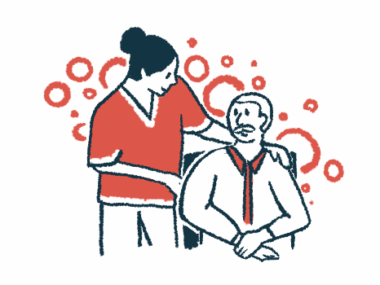Pingpong for Parkinson’s disease may help patients as PT
Patient teams up with UConn Health to launch free 'Parkie Pong' program
Written by |

Note: This story was updated July 26, 2023, to correct two errors from the source material: “Parkie Pong” is available at West Hartford Senior Center’s Elmwood location, and Laini Weitz announced the program’s creation during a support group meeting.
When a knee injury limited newly diagnosed Parkinson’s disease patient Laini Weitz’s ability to play pickleball and do other daily exercise, she turned instead to a sport she’d played in college, pingpong — and has now helped launched a new “Parkie Pong” program at her local senior center in Connecticut that serves as a form of physical therapy for herself and others with the neurodegenerative disorder.
Weitz, 72, teamed up with a social worker from the University of Connecticut’s Parkinson’s Disease and Movement Disorders Center and the West Hartford Senior Center at the Elmwood location to start the free program after learning that pingpong, also known as table tennis, can be an effective way to help people with Parkinson’s disease to maintain, and in some cases, regain, some lost function.
“I tore my meniscus, and I was out of pickleball for four months,” Weitz said in a UConn Health news story. “You can’t do that to me. So I said I need something else. Well, ping pong doesn’t have the same demands, so maybe I’ll play ping pong.”
She did — and then floated her idea for pingpong for Parkinson’s disease in a patient support group she’d joined at UConn Health. The group is led by Kristen Vavrek, a social worker in the neurology department, who would serve as the keynote speaker when the Elmwood Senior Center ultimately debuted its new program.
“As [Weiz] was adjusting emotionally and psychologically to the news of her Parkinson’s disease diagnosis, she looked for ways to continue to help herself and in doing so, she found ping pong as an outlet. The more that she learned and researched about the benefits of ping pong with Parkinson’s disease, she was able to shift her focus on helping others and her community,” Vavrek said.
Investigating pingpong for Parkinson’s disease patients
Before her Parkinson’s diagnosis last year, exercise already was a big part of Weitz’s life. After the diagnosis, she knew she needed to double down. Her weeks were typically filled with activities such as pickleball, running, cycling, weightlifting, and punching a heavy bag.
Then Weitz hurt her knee, which limited her options.
The more I looked at it, the more I found all sorts of literature about how [ping pong] is great for cognition and for spatial relationships, and for socialization and for strategy, and for movement and gait, it just kept adding on and on. And it wasn’t just people talking, it was doctors who were saying this.
She’d played pingpong in college, and occasionally with her grandchildren, but needed to determine how to incorporate the sport — which involves a table and net, balls and paddles, and other players — into her exercise routine. The exercise aficionado also did her homework. Overall, she found that physical exercise can help to ease motor symptoms in Parkinson’s and can help with cognitive function.
“The more I looked at it, the more I found all sorts of literature about how this is great for cognition and for spatial relationships, and for socialization and for strategy, and for movement and gait, it just kept adding on and on,” Weitz said. “And it wasn’t just people talking, it was doctors who were saying this.”
Still, Weitz continued to mull the notion of bringing “Parkie Pong” to the senior center, which has four pingpong tables.
“Would this be a crazy idea?” Weitz recalled thinking. Finally, she announced the idea during a support group at UConn Health.
“I said, ‘Parkie Pong, why not? You used to have a program for Parkinson’s but not ping pong, and during COVID that got disbanded, maybe it’s time to do something again.’ And they said, ‘We love it!” Weitz said.
Launching Parkie Pong at the senior center
The official launch came at the start of summer, with volunteer pingpong players helping out by hitting balls with patients or by picking balls up.
“It’s a safe place to play, and to get some exercise and to socialize, and to know that you’re accepted,” Weitz said.
“It’s a place where you can open up and maybe shed some of the anxiety or some of the depression that comes along with [Parkinson’s] because you’re having fun. You’re doing something that’s good for you in a fun and supportive environment,” she said.
The idea that playing pingpong can mitigate Parkinson’s disease symptoms has been spreading since at least 2017, when the nonprofit organization PingPongParkinson was established in Westchester County, New York. That program has now expanded to other states, as well as to Austria.
To participate in the Parkie Pong program in Connecticut, which is open to patients and their support partners, call 860-561-8180 or send an email to [email protected]. To learn more about the Parkinson’s disease support group at UConn Health, call 860-679-3224 or send an email to [email protected].




